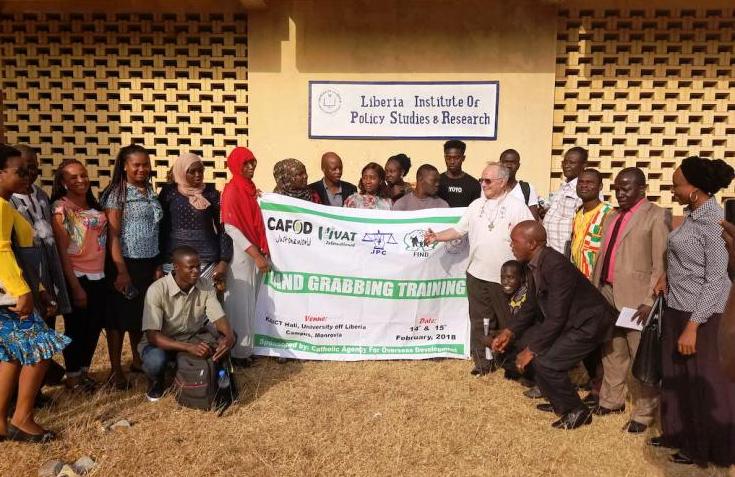Advocating From The Bottom Up

It all started when someone stood up saying, “In Liberia there is private land, public land, community’s land and Government’s land”.
Surprised I investigated and I found an amazing answer. I was brought back to when “The statutory tenure system was introduced in the early 1800s by the American Colonization Society (ACS), which purchased land along the coast of present-day Liberia from indigenous African chiefs and, in the 1820s, began bringing freed slaves from the United States to settle.” (Land and Policy and Institutional Support (LPIS) Project Customary Land). Thus, practically under the first President of the free Liberia Republic all land without a recognized deed – and none had it at that time – was considered Government’s Land.
The Land Rights Act (LRA) is supposed to address the land tenure in modern Liberia. Its first draft was delivered by the legally constituted Land Commission to, at the time, President Ellen Johnson Sirleaf on July 4th 2014. Since then much opposition was made to its approval. Jonathan Gant, Global Witness campaigner, states: “The LRA, if passed, should recognize that communities own their land and ensure local communities – and only local communities – have the power to say where their lands are and how they should be managed.” (Land Rights Act Suffers Setback At Liberian Legislature). His words react to changes that are introduced in the first draft with the unconfessed intention of opening the door to powerful corporations (or concessions as they are called in Liberia) such as Firestone (See Liberia Concessions Aid Data).
I was not surprised, therefore, at the peasants’ awareness and commitment strongly raised during the meetings in Monrovia and workshops in Gbarnga (The Bong county in central Liberia). In Gbarnga a week’s workshop gathered 50 community’s leaders and Justice and Peace activists, and another training week was held for trainers. Almost all of them have been suffering in their lives not only the 14 years’ war but also the secular injustice produced by wrongly managed land tenure laws and regulations coming down from the top.
“Now is time that all tenure legislation is established from the bottom people, up”, was the mantra repeated in four pages of answers to questions I proposed ending the workshops: What do you propose and have to ask that has to be done from now on. Their answers ranged from “The Government should” to “The peasants have to” and “We will do”.
Let’s just mention some of the requests to the highest top: Government should make all its effort to have the Land Right Act (LRA) passed into law and explained to the citizens and implement a set of policies flowing from the LRA; it should enact laws that implement in the best interest of the people the international principles guiding Land tenure; it should come up with a straight policy that guides Land issues in Liberia, decentralizing the operating agency responsible for land so to make it active in the rural areas; the peasants and Indigenous People should be involved in addressing the Land Grabbing issues and land tenure policies, because they are the direct beneficiaries of the land; traditional leaders, youth – the future beneficiaries- and women who greatly depend on the land for economic purposes, should have a voice in every agreement on land; it, the Government, should enforce LRA making the land grabbing illegal and impose restrictions and conditions on purchase of land by any individual or company; it should provide room for Civil Society Organizations to monitor the issues of Land tenure and especially of the Land Grabbing, providing to them full information on land issues, such as concession agreements, the results of monitoring and evaluations.
Would the new Government listen to the people’s cry for justice on land, now one can know. What is certain is that Liberian peasants and Indigenous people want to be empowered of their own destiny tightly linked to the land received from their ancestors. The land conflicts in Liberia are many and of various types: between individuals, communities, the 16 different ethnic groups; between state and communities, communities and corporations. The lowest people urge just and right solutions: after 12 years of fragile peace they do not want to see any war coming back because on land issues.
John Paul Pezzi, mccj
VIVAT International NGO,
with consultative special status at UN



